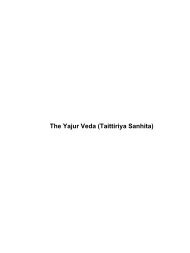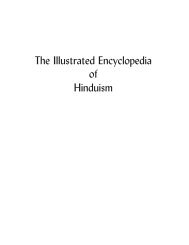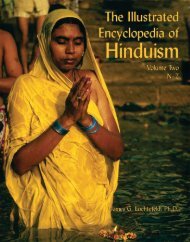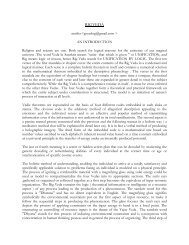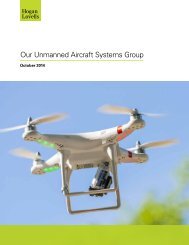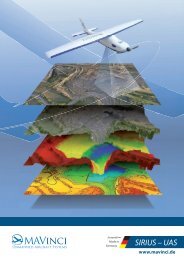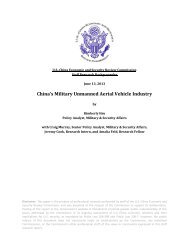A Concise Encyclopedia of Hinduism Klaus K Klostermaie
You also want an ePaper? Increase the reach of your titles
YUMPU automatically turns print PDFs into web optimized ePapers that Google loves.
Meykaæõa(deva) 118<br />
Meykaæõa(deva)<br />
(13th century)<br />
Religious name <strong>of</strong> Ÿvetabana, a Ÿaiva<br />
philosopher, author <strong>of</strong> the Ÿivajñanabodha,<br />
an important source for<br />
ŸAIVA SIDDHÄNTA, <strong>of</strong>ten commented<br />
upon by Tamil authors in later centuries.<br />
milk<br />
Hindus consider COW’s milk the perfect<br />
FOOD and drink, the most sattvik (pure)<br />
<strong>of</strong> all. Milk from a kapila (brownish) cow<br />
was reserved for brahmins and for<br />
worship. Bathing an IMAGE in milk is a<br />
particularly solemn form <strong>of</strong> PÜJÄ. Advanced<br />
YOGIS subsist <strong>of</strong>ten on milk alone.<br />
Mïmäƒsä (‘disquisition’)<br />
This usually refers to the short form <strong>of</strong><br />
Pürva Mïmäƒsä (‘earlier disquisition’)<br />
over against Uttara Mïmäƒsä (‘later<br />
disquisition’, or Vedänta). It is one <strong>of</strong><br />
the six orthodox (systems) (darÿanas),<br />
devoted to the exegesis <strong>of</strong> the karmakända<br />
(the part dealing with ritual) <strong>of</strong><br />
the Veda, focusing on the injunctions<br />
contained in them.<br />
The earliest text is the Mïmäƒsä Sütra,<br />
ascribed to JAIMINI. It is a collection <strong>of</strong><br />
aphorisms analysing the elements <strong>of</strong> Vedic<br />
commands in connection with rituals. The<br />
Mïmäƒsä Sütras were extensively commented<br />
on by ŸABARA in the so-called<br />
Ÿäbarabhä•ya, which received many subcommentaries<br />
by later writers such as<br />
KUMÄRILA BHAfifiA and Pärthasärathi<br />
Miÿra (14th century).<br />
The Mïmäƒsakas held the Veda to<br />
be apauru•eya, i.e. not composed by a<br />
person, either divine or human, but selfexistent<br />
and eternal. That gave it<br />
supreme authority, and its WORD is the<br />
ultimate pro<strong>of</strong> <strong>of</strong> the truth <strong>of</strong> a statement.<br />
They also insisted that only those<br />
portions <strong>of</strong> the Veda are ÿruti (revealed<br />
and therefore authoritative scripture)<br />
that contain an injunction; the rest<br />
(such as Upani•ads) are mere eulogy,<br />
because they do not prescribe actions to<br />
be performed but only describe already<br />
existing entities.<br />
In addition to explaining the meaning<br />
<strong>of</strong> certain Vedic injunctions, the<br />
Mïmäƒsakas analysed the nature and<br />
structure <strong>of</strong> LANGUAGE. They developed<br />
principles <strong>of</strong> interpretation which found<br />
application in the practice <strong>of</strong> Hindu law<br />
up to our own times. (See also ŸABDA.)<br />
Mïnäk•ï (‘the fish-eyed one’)<br />
Title <strong>of</strong> the Goddess (DEVÏ) as worshipped<br />
in the main shrine <strong>of</strong> MADURAI<br />
in Tamilnäõü. There is an ancient belief<br />
that fish feed their young by just looking<br />
at them; the Goddess is expected to<br />
give support to her devotees through<br />
her mere glance.<br />
mind<br />
The English word ‘mind’ is the translation<br />
<strong>of</strong> two Sanskrit terms with very different<br />
meanings and connotation in<br />
Hindu thought: (1) manas (which etymologically<br />
is close to Latin mens and<br />
English ‘mind’) is classified as the highest<br />
among the sense organs, the<br />
medieval sensus communis; (2) ‘higher<br />
mind’, i.e. spirit, consciousness, is rendered<br />
by terms such as cit, caitanya,<br />
buddhi etc.<br />
Mïräbäï (1547–1614)<br />
Räjasthani princess, an early and ardent<br />
devotee <strong>of</strong> Kø•æa, she was married into<br />
a ŸAKTI-worshipping Räjput household<br />
at Chitor. She refused to worship the<br />
Goddess (DEVÏ), saying she was wedded<br />
to Kø•æa. She was forced to leave<br />
Chitor, and fled to VØNDÄVANA.<br />
Reconciled with her husband, she<br />
moved back to Chitor, but after his<br />
death she was mistreated by her in-laws<br />
and left again for Vøndävana.<br />
According to a local tradition she was<br />
absorbed into a Kø•æa image while worshipping<br />
there. Her beautiful poems and<br />
songs are still recited by Kø•æa BHAKTAS




